The Wholesome Journey - Group Nutrition Coaching Program
Mentorship Program, 1:1 Nutrition Coaching with Alison
What do you want to learn more about?
Program Login
Podcast Features
November 29, 2018
Alison Tierney, MS, RD, CD, CSO
Alison is a registered dietitian, board-certified in oncology nutrition, and a cancer thriver. Her expertise in oncology nutrition and personal experience with her own cancer diagnosis and its treatment provide her with the unique perspective of being able to relate to her clients on an entirely different level. Her content is consistently focused on evidence-based guidelines and seeks to increase the awareness of the power of nutrition to complement traditional cancer therapies.
- Alison Tierney, MS, RD, CD, CSO
- Alison Tierney, MS, RD, CD, CSO
- Alison Tierney, MS, RD, CD, CSO
- Alison Tierney, MS, RD, CD, CSO
- Alison Tierney, MS, RD, CD, CSO
- Alison Tierney, MS, RD, CD, CSO
- Alison Tierney, MS, RD, CD, CSO
- Alison Tierney, MS, RD, CD, CSO
- Alison Tierney, MS, RD, CD, CSO
- Alison Tierney, MS, RD, CD, CSO
- Alison Tierney, MS, RD, CD, CSO
- Alison Tierney, MS, RD, CD, CSO
- Alison Tierney, MS, RD, CD, CSO
- Alison Tierney, MS, RD, CD, CSO
- Alison Tierney, MS, RD, CD, CSO
- Alison Tierney, MS, RD, CD, CSO
- Alison Tierney, MS, RD, CD, CSO
- Alison Tierney, MS, RD, CD, CSO
- Alison Tierney, MS, RD, CD, CSO
- Alison Tierney, MS, RD, CD, CSO
- Alison Tierney, MS, RD, CD, CSO
- Alison Tierney, MS, RD, CD, CSO
- Alison Tierney, MS, RD, CD, CSO
- Alison Tierney, MS, RD, CD, CSO
- Alison Tierney, MS, RD, CD, CSO
- Alison Tierney, MS, RD, CD, CSO
- Alison Tierney, MS, RD, CD, CSO
- Alison Tierney, MS, RD, CD, CSO
- Alison Tierney, MS, RD, CD, CSO
- Alison Tierney, MS, RD, CD, CSO
- Alison Tierney, MS, RD, CD, CSO
- Alison Tierney, MS, RD, CD, CSO
- Alison Tierney, MS, RD, CD, CSO
- Alison Tierney, MS, RD, CD, CSO
- Alison Tierney, MS, RD, CD, CSO
- Alison Tierney, MS, RD, CD, CSO
- Alison Tierney, MS, RD, CD, CSO
- Alison Tierney, MS, RD, CD, CSO
- Alison Tierney, MS, RD, CD, CSO
- Alison Tierney, MS, RD, CD, CSO
- Alison Tierney, MS, RD, CD, CSO
- Alison Tierney, MS, RD, CD, CSO
- Alison Tierney, MS, RD, CD, CSO
- Alison Tierney, MS, RD, CD, CSO
- Alison Tierney, MS, RD, CD, CSO
- Alison Tierney, MS, RD, CD, CSO
- Alison Tierney, MS, RD, CD, CSO
- Alison Tierney, MS, RD, CD, CSO
- Alison Tierney, MS, RD, CD, CSO
- Alison Tierney, MS, RD, CD, CSO
- Alison Tierney, MS, RD, CD, CSO
- Alison Tierney, MS, RD, CD, CSO
- Alison Tierney, MS, RD, CD, CSO
- Alison Tierney, MS, RD, CD, CSO
- Alison Tierney, MS, RD, CD, CSO
- Alison Tierney, MS, RD, CD, CSO
- Alison Tierney, MS, RD, CD, CSO
- Alison Tierney, MS, RD, CD, CSO
- Alison Tierney, MS, RD, CD, CSO
- Alison Tierney, MS, RD, CD, CSO
- Alison Tierney, MS, RD, CD, CSO
- Alison Tierney, MS, RD, CD, CSO
- Alison Tierney, MS, RD, CD, CSO
- Alison Tierney, MS, RD, CD, CSO
- Alison Tierney, MS, RD, CD, CSO
- Alison Tierney, MS, RD, CD, CSO
- Alison Tierney, MS, RD, CD, CSO
- Alison Tierney, MS, RD, CD, CSO
- Alison Tierney, MS, RD, CD, CSO
- Alison Tierney, MS, RD, CD, CSO
- Alison Tierney, MS, RD, CD, CSO
- Alison Tierney, MS, RD, CD, CSO
- Alison Tierney, MS, RD, CD, CSO
- Alison Tierney, MS, RD, CD, CSO
- Alison Tierney, MS, RD, CD, CSO
- Alison Tierney, MS, RD, CD, CSO
- Alison Tierney, MS, RD, CD, CSO
- Alison Tierney, MS, RD, CD, CSO
- Alison Tierney, MS, RD, CD, CSO
- Alison Tierney, MS, RD, CD, CSO
- Alison Tierney, MS, RD, CD, CSO
- Alison Tierney, MS, RD, CD, CSO
- Alison Tierney, MS, RD, CD, CSO
- Alison Tierney, MS, RD, CD, CSO
- Alison Tierney, MS, RD, CD, CSO
- Alison Tierney, MS, RD, CD, CSO
- Alison Tierney, MS, RD, CD, CSO
- Alison Tierney, MS, RD, CD, CSO
- Alison Tierney, MS, RD, CD, CSO
- Alison Tierney, MS, RD, CD, CSO
- Alison Tierney, MS, RD, CD, CSO
- Alison Tierney, MS, RD, CD, CSO
- Alison Tierney, MS, RD, CD, CSO
- Alison Tierney, MS, RD, CD, CSO
- Alison Tierney, MS, RD, CD, CSO
- Alison Tierney, MS, RD, CD, CSO
- Alison Tierney, MS, RD, CD, CSO
- Alison Tierney, MS, RD, CD, CSO
- Alison Tierney, MS, RD, CD, CSO
- Alison Tierney, MS, RD, CD, CSO
- Alison Tierney, MS, RD, CD, CSO
- Alison Tierney, MS, RD, CD, CSO
- Alison Tierney, MS, RD, CD, CSO
- Alison Tierney, MS, RD, CD, CSO
- Alison Tierney, MS, RD, CD, CSO
- Alison Tierney, MS, RD, CD, CSO
- Alison Tierney, MS, RD, CD, CSO
- Alison Tierney, MS, RD, CD, CSO
- Alison Tierney, MS, RD, CD, CSO
- Alison Tierney, MS, RD, CD, CSO
- Alison Tierney, MS, RD, CD, CSO
- Alison Tierney, MS, RD, CD, CSO
- Alison Tierney, MS, RD, CD, CSO
- Alison Tierney, MS, RD, CD, CSO
- Alison Tierney, MS, RD, CD, CSO
- Alison Tierney, MS, RD, CD, CSO
- Alison Tierney, MS, RD, CD, CSO
- Alison Tierney, MS, RD, CD, CSO
- Alison Tierney, MS, RD, CD, CSO
- Alison Tierney, MS, RD, CD, CSO
- Alison Tierney, MS, RD, CD, CSO
- Alison Tierney, MS, RD, CD, CSO
- Alison Tierney, MS, RD, CD, CSO
Many clients ask me, “Are there any cancer causing foods I should avoid?”. Certainly, there is no one food that can cause the development of cancer (and no one food that can prevent cancer), there are certain foods that may increase the risk. Here are five common foods that may increase the risk of cancer. Plus, tips on how to reduce your exposure to them.
Is there such a thing as cancer causing foods?
As an oncology dietitian, I work with patients during cancer treatment to help reduce side effects and ensure proper nourishment. Outside of cancer treatment and into survivorship, I focus on reducing the risk of recurrence. We do this by modifying lifestyle factors with an evidence-based, whole-person approach.
Did you know?
Evidence indicates, of all cancer deaths (1):
- 5-10% are related to genetics
- 20-25% are related to smoking
- 15-25% are related to infection
- 30-35% are related to diet
- And the remaining percent are related to radiation, stress, physical activity, environmental exposures, etc.
Let’s look at that list again . . .
Diet accounts for the largest percent of cancer deaths.
Yet, how often do we hear about the connection between diet and cancer? Not enough.

This is why Wholesome exists. Wholesome focuses on increasing the awareness of nutrition as a complementary tool to reduce the risk of cancer and chronic disease.
There are many things that can increase one’s risk for cancer. And many of these things we encounter simply by living life. Unfortunately, we cannot control or completely eliminate all of them. Nevertheless, we can focus on the ones we can control, including what we eat.
Here are 5 common foods that may be considered “cancer causing foods” as these foods have links to increased cancer risk.
Please Note: I use the phrase “cancer causing foods” in quotes since the consumption of these foods themselves is not likely to cause cancer, but there is data to suggest these foods increase the risk cancer – some more than others. I encourage individuals to focus on reducing these foods within their diet. Furthermore, to replace these foods with whole, plant-foods as best as possible to reduce one’s risk of cancer development and it’s recurrence.
The 5 Cancer Causing Foods to Consider Eliminating or Reducing from One’s Diet
1. Processed Meat
Processed meats, for example bacon, sausage, and deli meats, are widely known and considered a “cancer causing food” as they have been linked to an increased risk of colorectal cancer. This is because they often contain nitrates and nitrites, which can form cancer-causing compounds in the body.
The International Agency for Research on Cancer (IARC) is focuses on identifying what causes cancer so preventative measures can be taken. Almost 1,000 carcinogens (or, cancer causing substances) have been identified and are grouped based on the research available and how likely the substance is to cause cancer in humans.
The first category is “Group 1: Carcinogenic to Humans”. On that list, smoking, asbestos, plutonium . . .
And, the consumption of processed meat.
You can see this list here if you want to see what else is considered a “Group 1 Carcinogen”.
Consider reducing your intake of processed meat completely or as low as possible. One of our favorite sandwiches the replace the typical lunch meat sandwich can be found here. Our Smashed Avocado, Chickpea, Pesto Sandwiches!
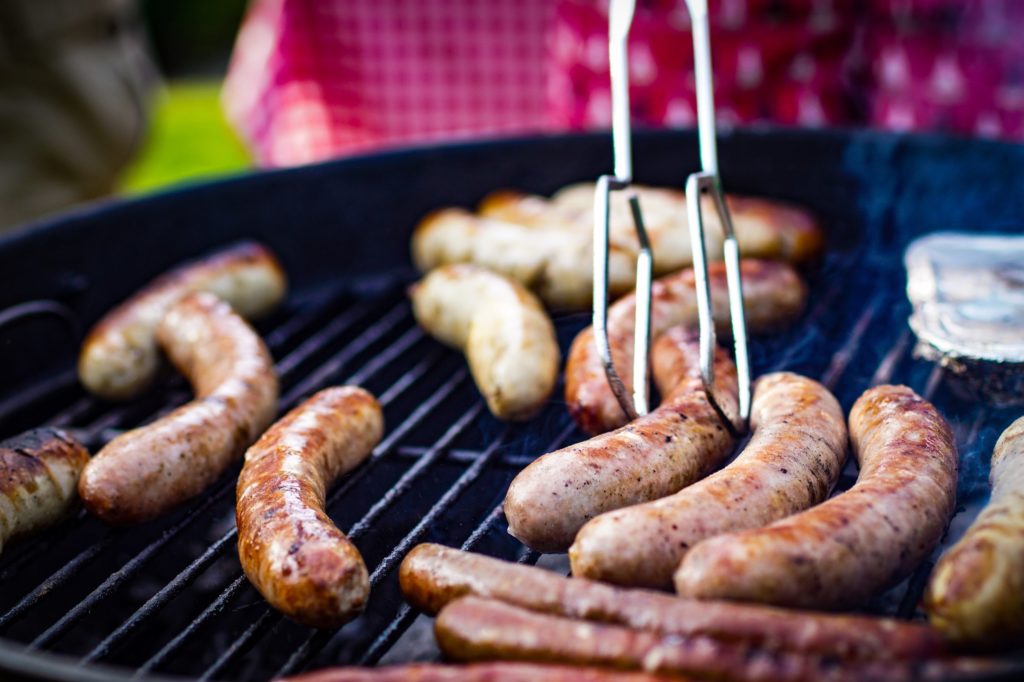
2. Red Meat
If you scroll a bit farther down the list I linked above and make it to “Group 2A: Probably Carcinogenic to Humans”, you’ll find:
Red Meat (consumption of)
This includes, but is not limited to: beef, pork, veal, and lamb.
Unfortunately, red meat, such as beef, pork, and lamb, is linked to an increased risk of cancer, particularly colorectal cancer. Researchers believe this may be due to the high levels of saturated fat and heme iron found in red meat.
To reduce your risk, try to limit your intake of red meat and opt for leaner protein sources, such as fish and even better, plant-based options like beans and lentils. If you do choose to eat red meat, aim for smaller portions and choose lean cuts.
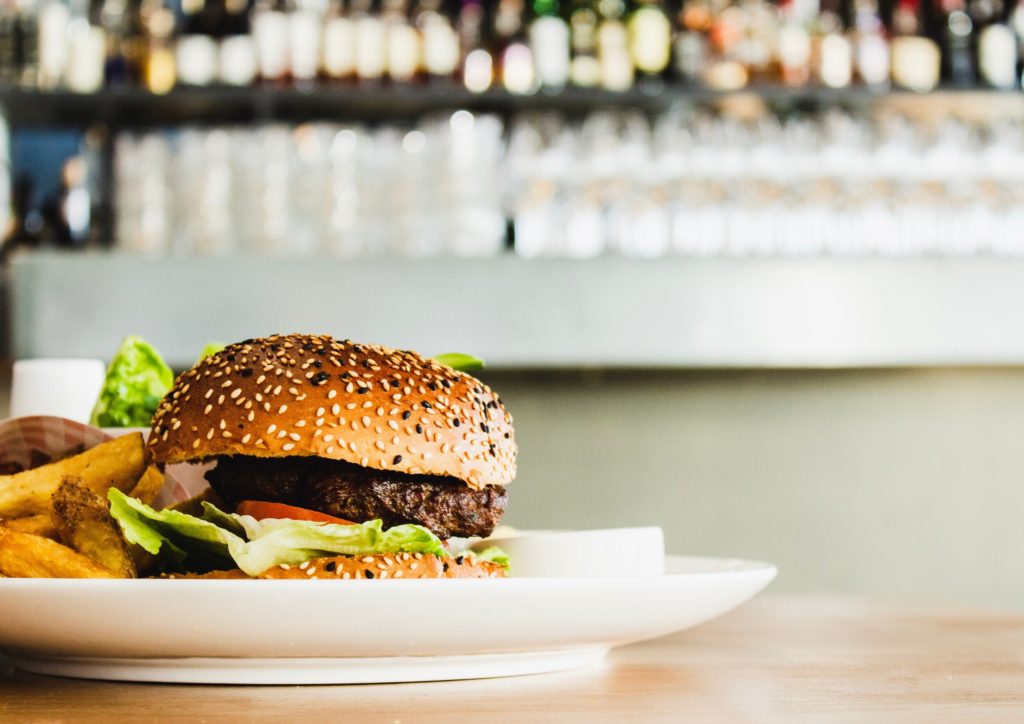
3. Dairy
While dairy products can be a good source of calcium and other nutrients, some studies have suggested that high intake of dairy products may increase the risk of certain cancers, such as prostate cancer. This may be due to the hormones and growth factors found in dairy products, as well as the high levels of saturated fat.
The WCRF and AICR in the Third Expert Report states: “There is limited but suggestive evidence that consumption of dairy products might increase the risk of prostate cancer. The evidence of potential harm means no recommendations has been made for dairy products.”
While there is still more research that needs to be conducted on the impact of dairy and cancer risk, you may consider reducing your risk by limiting your intake of dairy products by simply reducing your intake and/or by choosing non-dairy alternatives.
If you’re interested in learning more about dairy, hormones and cancer, check out my blog post here.

4. Alcohol
Alcohol consumption has been linked to an increased risk of several types of cancer, including breast, liver, and colorectal cancer. The more alcohol a person drinks, the higher their risk. This is because alcohol can damage DNA, increase inflammation, and affect hormone levels, all of which can contribute to the development of cancer.
To reduce your risk, some experts recommend to limit alcohol consumption or avoid it altogether. Whereas the WCRF and AICR recommends no more than one serving of alcohol per day for women, two servings for men.

5. Eggs
There has been much debate about whether or not eggs increase the risk of cancer. While some studies have suggested a possible link between high egg consumption and an increased risk of certain types of cancer, such as prostate cancer, other studies have found no significant association.
Eggs certainly can be a good source of protein and can be part of a healthy diet in moderation. If you aren’t interested in eliminating eggs completely it is best to advise individuals to consume eggs in moderation and as part of a balanced diet focused on whole, unprocessed plant foods as much as possible.
If you’d like to learn more about the research of eggs and their potential role in cancer, I wrote a blog posted dedicated to the topic here.
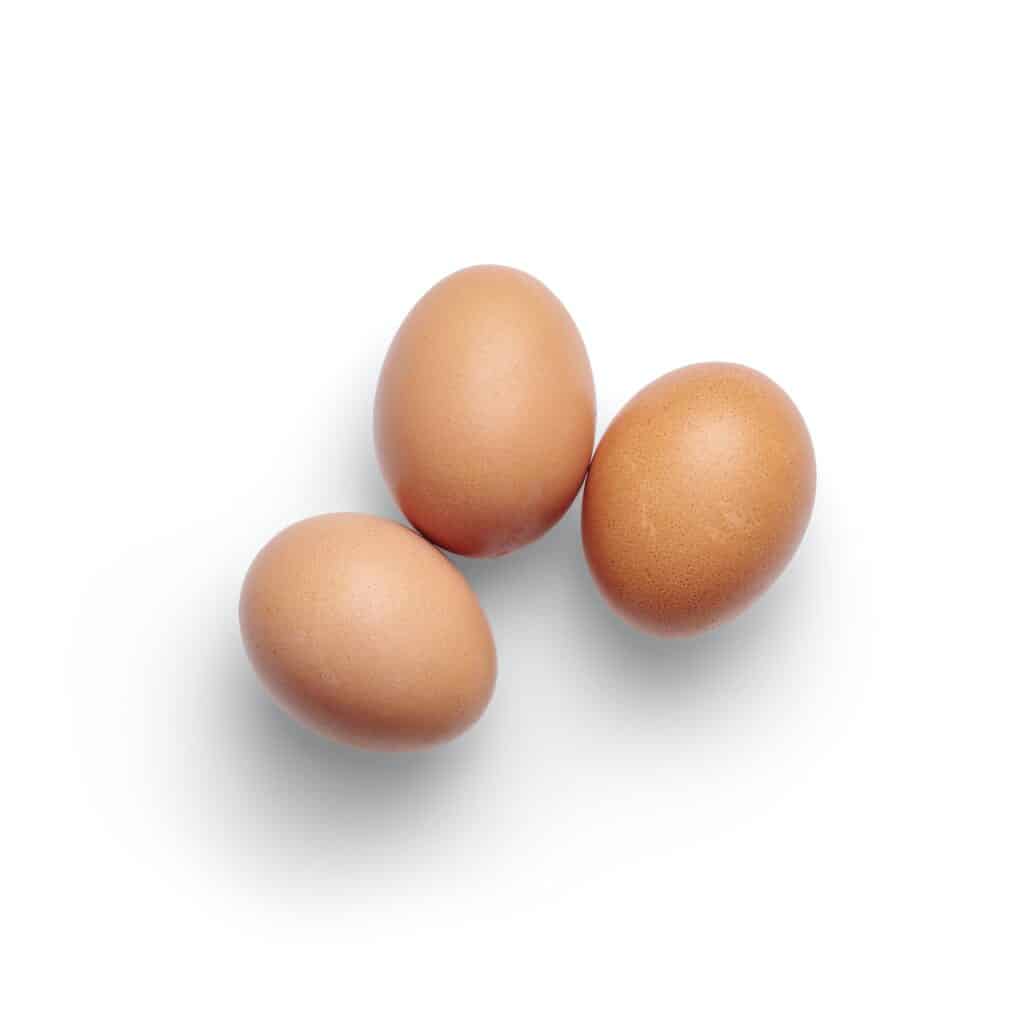
———
After reading this list, you may be overwhelmed thinking, “what should I eat then?!”
Thankfully, there is an abundant amount of research regarding whole, plant-based foods as the foundation of a healthy diet.
We’ve got you covered on what this entails over at our post, “Healthiest Diet” and loads of recipes avoiding these five foods.
Plus, we’ve got a complete 5-Day Plant-Based Meal plan (free of processed meat, red meat, alcohol, dairy, and eggs!) for you to grab. Click the button below and we’ll deliver it to your inbox!
References:
(1) Anand, P., & Kunnumakara, A. (2008). Cancer is a Preventable Disease that Requires Major Lifestyle Chnges. Pharmaceutical Research, 25(9), 2097-2116. Retrieved November 24, 2018, from https://www.ncbi.nlm.nih.gov/pmc/articles/PMC2515569/.
Blog Updated April 2023
Cancer Causing Foods to Know About
Leave a Reply Cancel reply
Featured Articles
Wholesome LLC is not a medical practice, and its employees cannot offer medical advice. This website provides educational information but it is not a substitute for medical advice from a licensed medical professional who is familiar with your particular facts and circumstances. The information contained on this website is not intended to diagnose, treat, or cure any disease and shall not be construed as medical advice. The information and education on this website is provided for you to use at your own discretion.
You can further review our disclaimer here.
Wholesome
About Alison
Courses & Programs
The Wholesome Journey
Free Resources
FAQs
Press & Media
Recipes
Blog
Contact Us
Shop
© 2026 Wholesome, LLC All rights reserved.
Privacy Policy
Terms of Use
Disclaimer
Mobile Terms of Service
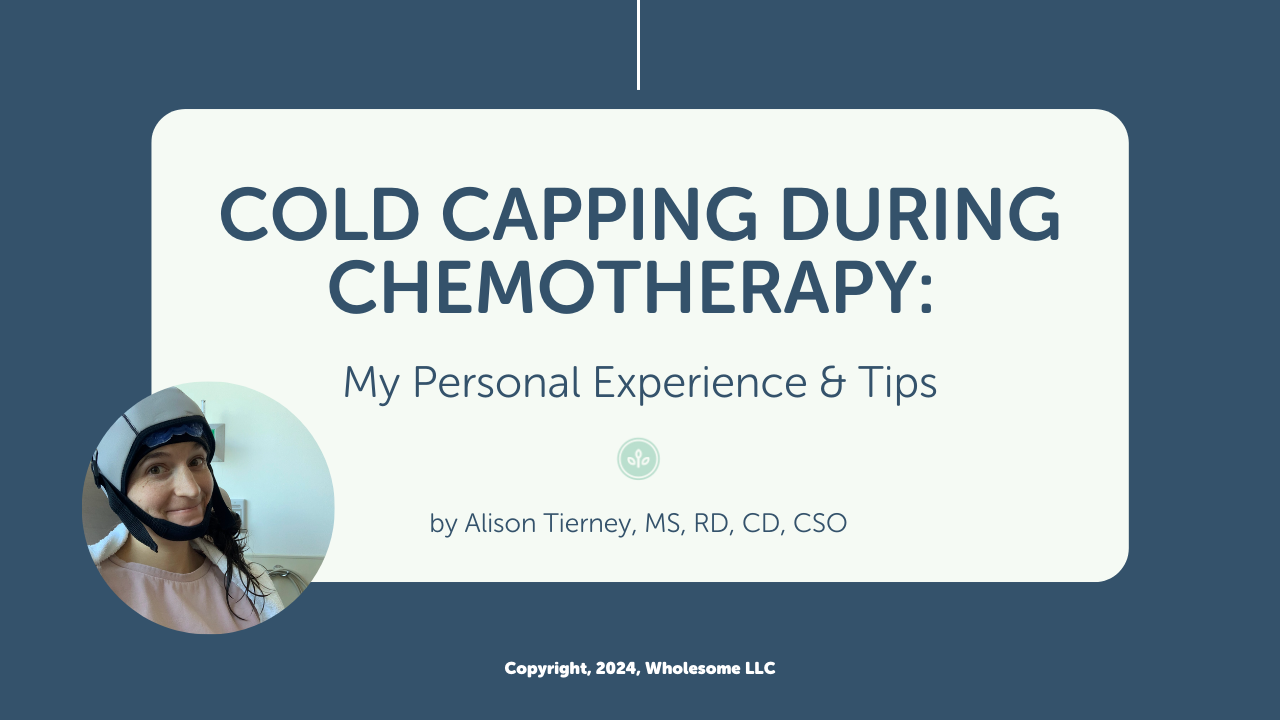
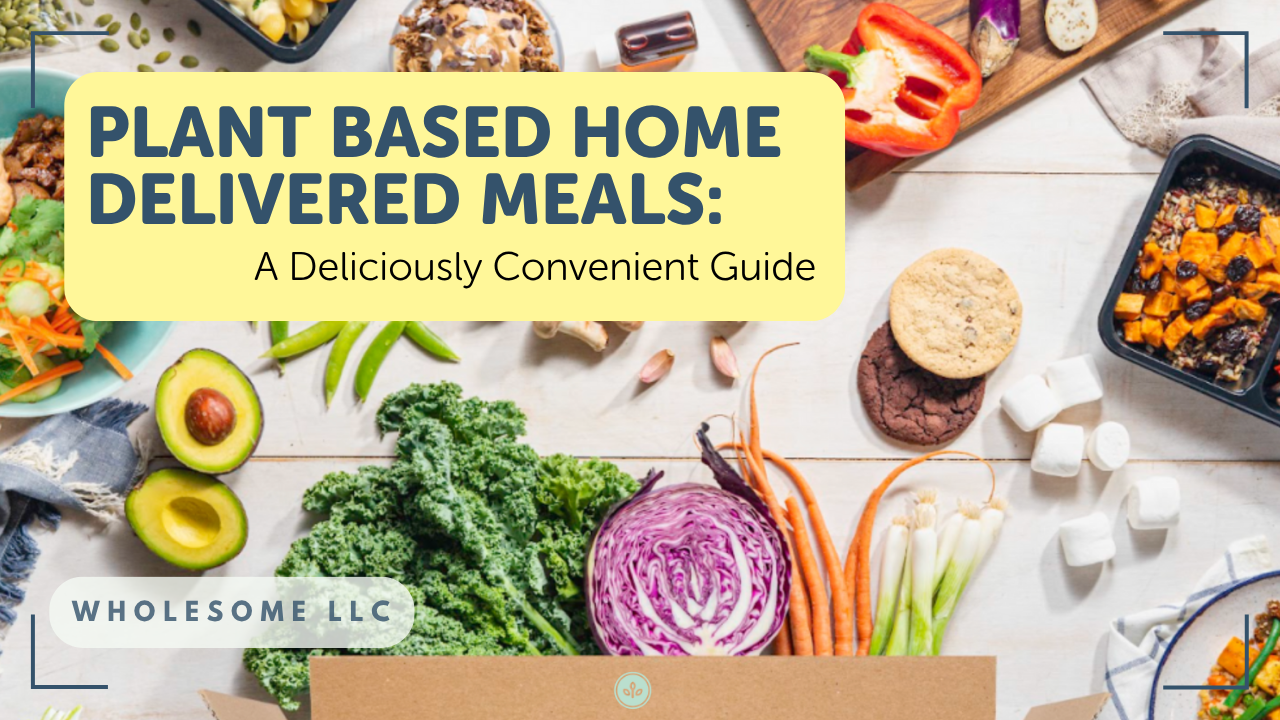

Thank you for putting this plan and information together for us.
Hi Kathy! It is truly our pleasure! We hope you like it and find it beneficial!